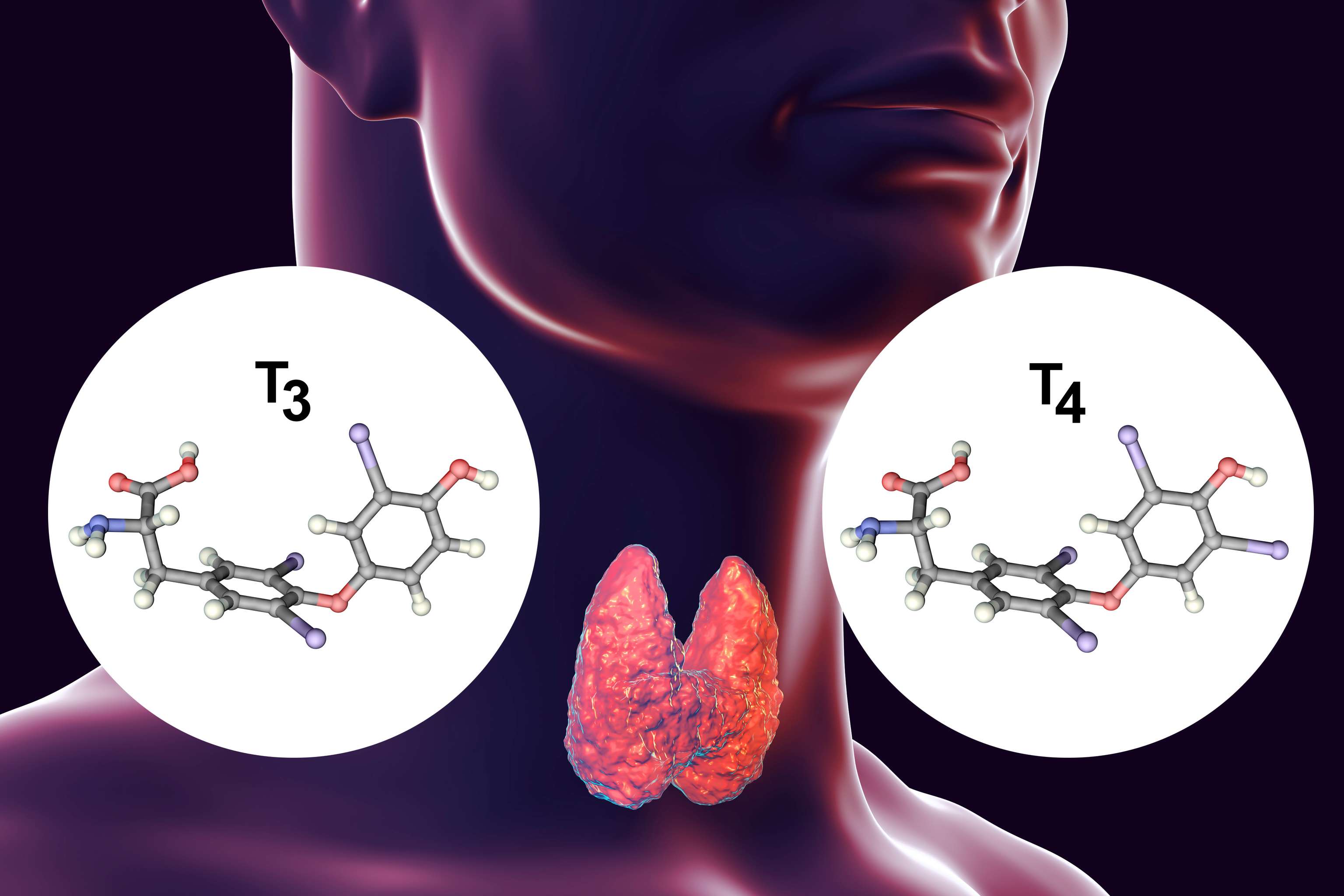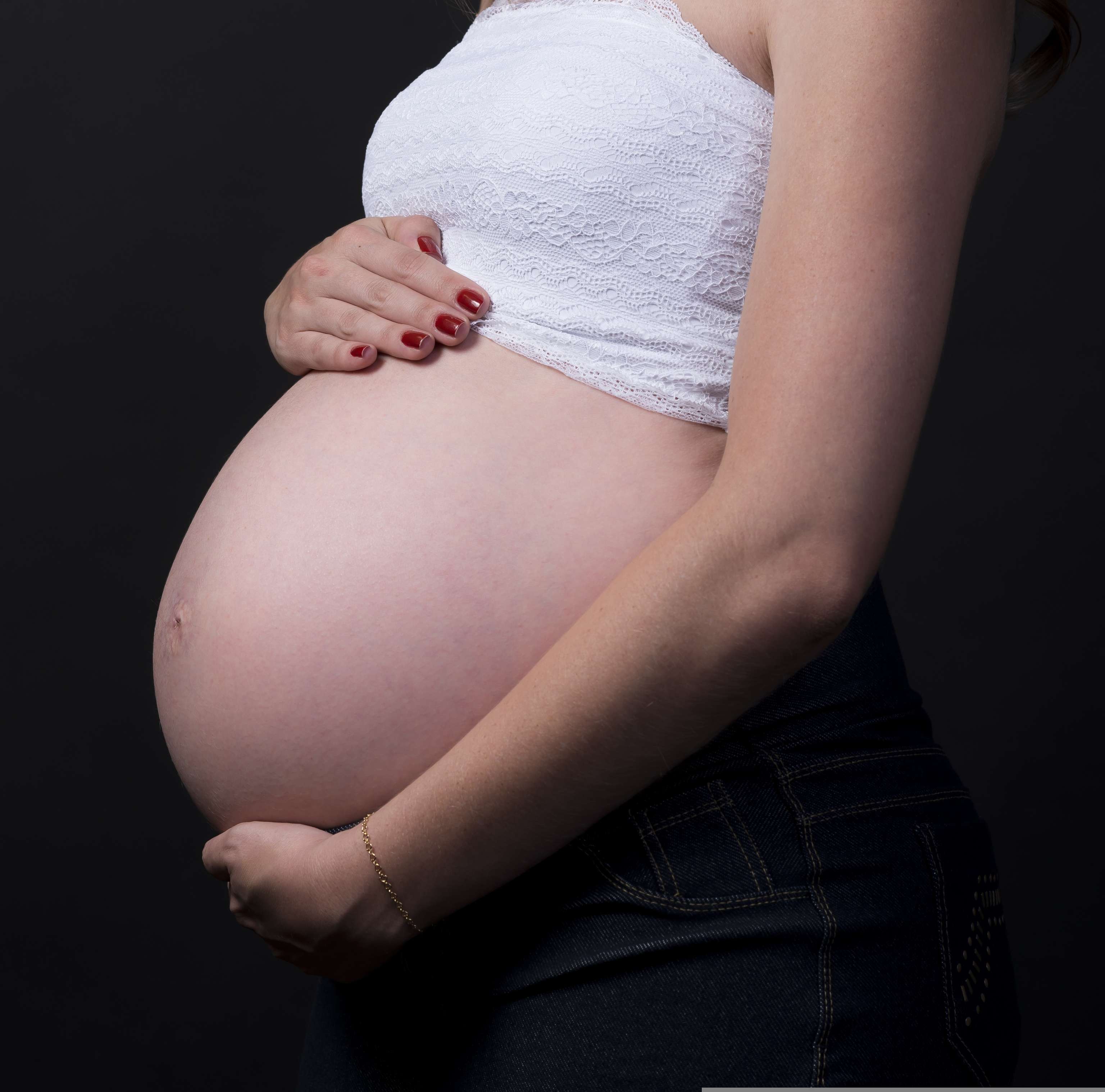How does the thyroid gland influence fertility?
In addition to the cardiovascular, nervous and digestive systems, thyroid hormones also exert influence on the reproductive functions of the body. The hormones T3 and T4 influence the sex hormones and thereby also the maturation of the egg and ovulation. Because of this, hypothyroidism or hyperthyroidism can cause cycle disorders, which manifests itself, for example, in irregular or absent menstruation and reduces the likelihood of conception.
In the case of an unfulfilled desire to have a child, an examination of the thyroid gland and clarification of the thyroid function is therefore necessary.
In hyperthyroidism, too many thyroid hormones are produced. The dysfunction can be recognized by a too low TSH value in the blood. If the cause of hyperthyroidism is an enlargement of the thyroid gland or a so-called hot nodule, this must be treated before pregnancy. A hot nodule in the thyroid gland consists of thyroid cells and releases thyroid hormones uncontrollably. In Graves' disease, the cause of hyperthyroidism, the immune system forms antibodies against the TSH receptors on the thyroid gland as an autoimmune reaction. These mimic the TSH effects and cause increased stimulation of the thyroid gland, resulting in increased production of thyroid hormones. The autoimmune disease is usually treated with thyrostatic drugs. This therapy complicates the desire to have children, as pregnancy is not recommended while taking thyreostatics due to the increased miscarriage rate, among other reasons. In this case, a desire to have children should be explicitly discussed with a thyroid specialist.
In the case of hypothyroidism, which is associated with an insufficient production of thyroid hormones and is diagnosed on the basis of an elevated TSH level, the fulfillment of the desire to have a child is somewhat less complicated. The cause of hypothyroidism may be chronic immune thyroiditis or Hashimoto's thyroiditis, in which the immune system produces antibodies against the thyroid gland, causing it to become inflamed and produce too little thyroid hormone despite increased stimulation by TSH. Treatment is by administration of thyroid hormone tablets.
In the case of an unfulfilled desire to have a child, the patient is usually advised to take thyroid hormones if the TSH value is 2.5 mU/l or higher. In this case, it is important that the underactive thyroid gland is sufficiently compensated before conception and that the hormone dose is increased in early pregnancy. This happens for the reason that in normal cases the pregnancy hormone beta-HCG stimulates the thyroid gland, whereby in early pregnancy (approx. 10th-12th week of pregnancy) more hormones are produced and a slight hyperfunction occurs. The increased energy demand is needed for the unborn child to develop and grow sufficiently. If the thyroid gland has been removed or does not produce enough hormones, this control loop with the increased basal metabolic rate cannot function (sufficiently), resulting in an increased abortion rate. Thus, hormone dosage in early pregnancy must be adjusted in most cases of hypothyroidism.
Significance of thyroid hormones for the unborn child
Thyroid hormones play a crucial role in the physical and mental development of the unborn child. At the beginning of pregnancy, the child's organism cannot yet produce thyroid hormones itself, which is why it is dependent on an adequate supply from the mother. Thyroid hormones are particularly essential for brain development, which is why physical and mental growth may be impaired, especially in the case of manifest thyroid insufficiency. To avoid any developmental damage, the mother must have an adequate supply of thyroid hormones. Serious consequences usually only occur in the case of (rarer) manifest hypothyroidism. Slight increases in TSH levels are usually easy to treat and therefore less dangerous for the unborn child.
Thyroid dysfunction and pregnancy.
Before pregnancy:
Ideally, thyroid function should be monitored regularly during the period of childbearing, for example at six-month intervals, so that therapy is adjusted accordingly to ensure well-controlled thyroid function.
At the beginning of pregnancy:
In early pregnancy, thyroid function should be checked promptly (around the 8th week of pregnancy) to adjust the hormone dose accordingly.
During pregnancy:
In the following months of pregnancy, regular checks of the thyroid gland should take place to ensure an adequate supply of thyroid hormones so that the mother can pass them on to the child, especially in the first three months.



